David Whyte
Seeking Language Large Enough
It has ever and always been true, David Whyte reminds us, that so much of human experience is a conversation between loss and celebration. This conversational nature of reality — indeed, this drama of vitality — is something we have all been shown, willing or unwilling, in these years. Many have turned to David Whyte for his gorgeous, life-giving poetry and his wisdom at the interplay of theology, psychology, and leadership — his insistence on the power of a beautiful question and of everyday words amidst the drama of work as well as the drama of life. The notion of “frontier” — inner frontiers, outer frontiers — weaves through this hour. We surface this as a companion for the frontiers we are all on just by virtue of being alive in this time.
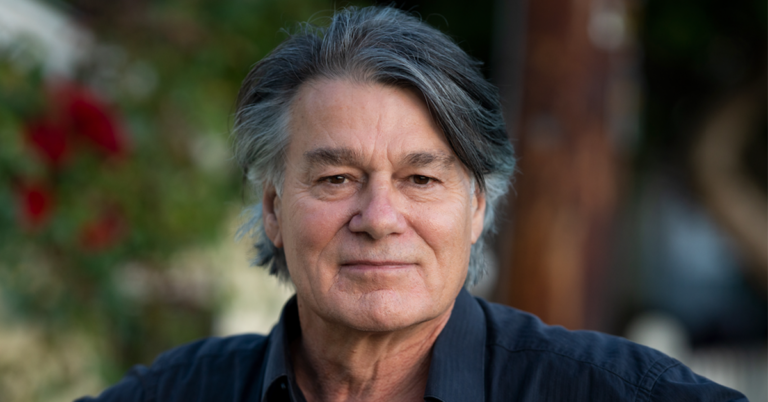
Image by Bodi Hallett, © All Rights Reserved.
Guest
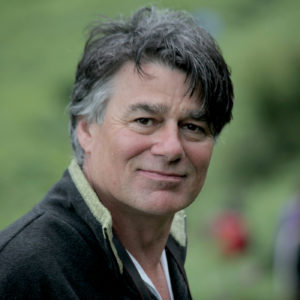
David Whyte is the author of many books of poetry and prose. He grew up with a strong, imaginative influence from his Irish mother among the hills and valleys of his father’s Yorkshire. He now makes his home in the Pacific Northwest of the United States. He holds a degree in Marine Zoology and has worked as a naturalist guide in the Galapagos Islands. His books include The Heart Aroused: Poetry and the Preservation of the Soul in Corporate America, Consolations: The Solace, Nourishment and Underlying Meaning of Everyday Words, and The Bell and the Blackbird. His latest collections are David Whyte: Essentials and Still Possible.
Transcript
Transcription by Heather Wang
Krista Tippett, host: It has ever and always been true, as David Whyte reminds us, that so much of human experience is a conversation between loss and celebration. This “conversational nature of reality” — indeed, this drama of vitality — is something we have all been shown, willing or unwilling, in these years. Many have turned to David Whyte for his gorgeous, life-giving poetry and his wisdom at the interplay of theology, psychology, and leadership, his insistence on the power of a “beautiful question” and of everyday words amidst the drama of work, as well as the drama of life. The notion of “frontier” — inner frontiers, outer frontiers — weaves through this hour. It is a delight to surface this as a companion for the frontiers we are all on, just by virtue of being alive in this time.
I’m Krista Tippett, and this is On Being.
[music: “Seven League Boots” by Zoë Keating]
David Whyte first became known for his book The Heart Aroused. His new poetry collection, in 2022, is Still Possible. This conversation happened in 2016.
David, for some reason, I had either heard you referred to as an Irish poet or I had referred to you as an Irish poet, but I lived in the U.K. for a little while, and I thought maybe your accent had gotten a little bit muddled up by living in the States too much. And then when I read that you grew up in Yorkshire and that you’re not all Irish, that all made perfect sense to me. [laughs]
David Whyte: Yes, my accent is a movable frontier, I think. And I grew up with an Irish accent in the house, through my mother, and all the usual Irish sayings and imaginings, and then spent quite a bit of time in Ireland, and then came to the States in my adulthood. So I think my accent’s about 40 miles off the coast of County Clare, somewhere in the mid-Atlantic. [laughs]
Tippett: [laughs] And would you explain, for people who don’t know, that — you talk about growing up; it was your mother who was Irish, and your father was from Yorkshire, and that there was this interplay in you between “imaginative” Irish and the “grounded” Yorkshire.
Whyte: Yes, I mean, Ireland has its own kind of grounding, but it’s grounded in the imagination and in subverting the foundations of everyday life. And Yorkshire is very much here in the world, very workaday, but sometimes Yorkshire is so grounded, it’s surreal, and it comes out — it turns into its opposite. So Yorkshire’s a place where the Industrial Revolution started in the world, but it’s also the place of Emily Brontë’s moors, the wildness of the Dales; quite remote places.
I remember when I was seven or eight years old, realizing that I wasn’t supposed to choose between the two places, even though they were so different. I was supposed to live out my life. Nowadays, I would put words into my mouth as a seven-year-old and say I was supposed to live out the conversation between them both. But it was something felt physically, very close. And of course, my work as a poet and philosopher has matured into working with what I call the conversational nature of reality, which is the fact that we don’t get to choose, so often, between things we hope we can choose between.
Tippett: Well, I want to talk about that very shortly, and before we do, just — well, actually, was there a spiritual background to that childhood of yours, or religious background?
Whyte: I would say it was spiritual by osmosis, rather than anything — my mother and her family had undergone the traumas, which have now become well-known, within the Catholic Church. So I’d say the spirituality for me was in the land, and the land of Yorkshire and the moors was very powerful indeed. And you can feel that spirituality if you read Emily Brontë, and that sense of horizon and distance and invitation that’s there.
Tippett: And then I was very intrigued to learn that you actually got your degree in marine zoology and that you actually began your working life as a naturalist and were in the Galapagos and the Amazon, Himalayas. Were you also writing poetry then?
Whyte: Well, I’ve written poetry since I was very small. I had very powerful experiences with poetry where I felt literally abducted, taken away by poetry, just like a hawk had come down and taken me in its claws and carried me off. And I remember reading Ted Hughes when I was young — and he must’ve been young then too — and having that feeling, and a very powerful feeling that this was language that adults had written, who had not forgotten the primary visions and insights of childhood.
But when I was 14 years old I saw Jacques Cousteau, the famous French marine zoologist and inventor of the aqualung, sail across our little television set in the North of England. [laughs] And I really couldn’t believe you could have work like this in the world. You could actually follow the life of the dolphin, aboard the good ship Calypso. And I was so astonished by it that I gave up all my art subjects and put myself into the salt mines of biology, chemistry, and physics.
Then I emerged with a degree in marine zoology, many years later. And then, through sheer luck and fortune, I found myself on the shores of the Galapagos Islands as a naturalist guide. And that was really astonishing, and that experience in those islands led me back into poetry and philosophy, really.
Tippett: That makes sense.
Whyte: So it was a long, long circuit.
Tippett: But it does illustrate some of the conversations that are — this phrase you mentioned a moment ago that’s so pivotal for you, the “conversational nature of reality” — some of the conversations you have worked with between, I don’t know, things that might not seem to naturally belong together, but that have been your life and the stuff of your philosophy and your poetry.
Whyte: Yes, I mean, I went back into poetry because I felt like scientific language wasn’t precise enough to describe the experiences that I had in Galapagos. Science, rightly, is always trying to remove the “I.” But I was really interested in the way that the “I” deepened, the more you paid attention. And in Galapagos I began to realize that because I was in deeply attentive states, hour after hour, watching animals and birds and landscapes — and that’s all I did for almost two years — I began to realize that my identity depended, not upon any beliefs I had, inherited beliefs or manufactured beliefs, but my identity actually depended on how much attention I was paying to things that were other than myself, and that as you deepen this intentionality and this attention, you started to broaden and deepen your own sense of presence.
And I began to realize that the only places where things were actually real was at this frontier between what you think is you and what you think is not you; that whatever you desire of the world will not come to pass exactly as you will like it, but the other mercy is that whatever the world desires of you will also not come to pass, and what actually occurs is this meeting, this frontier.
But it’s astonishing how much time human beings spend away from that frontier, abstracting themselves out of their bodies, out of their direct experience, and out of a deeper, broader, and wider possible future that’s waiting for them if they hold the conversation at that frontier level. Half of what’s about to occur is unknown, both inside you and outside you.
John O’Donohue, a mutual friend of both of us, used to say that one of the necessary tasks is this radical letting alone of yourself and the world — letting the world speak in its own voice and letting this deeper sense of yourself speak out.
Tippett: I love the Consolations book. The subtitle of that is “The Solace, Nourishment, and Underlying Meaning of Everyday Words.” And the word that comes first is “alone.” And I think it’s — one of the important observations you make there, and a thing that’s really basic, but hard for us to take in, is that “one of the elemental dynamics of self-compassion is to understand our deep reluctance to be left to ourselves.” [laughs]
Whyte: Yes, that’s right. I mean, I’ve often felt like the deeper discipline of poetry is overhearing yourself say things you didn’t want to know about the world, and something that actually emancipates you from the smaller self out into this larger dispensation that you actually didn’t think you deserved.
And so one of the things we’re most afraid of in silence is this death of the periphery. The outside concerns, the place where you’ve been building your personality and where you think you’ve been building who you are, starts to atomize and fall apart. And it’s one of the basic reasons we find it difficult even just to turn the radio off, or the television, or not look at our gadget, is that giving-over to something that’s going to actually seem as if it’s undermining you to begin with and lead to your demise. And the intuition, unfortunately, is correct. You are heading towards your demise, but it’s leading towards this richer, deeper place that doesn’t get corroborated very much in our everyday, outer world.
Tippett: Would you read the poem “Everything Is Waiting for You”?
Whyte: I’ll not only read it, I’ll recite it, actually.
Tippett: All right, excellent.
Whyte: I have it in my memory, and I was just in a room full of many hundred people this morning, reciting this very poem. And this piece is written almost like a conversation in the mirror, trying to remind myself what’s first-order. And we have so many allies in this world, including just the color blue in the sky, which we’re not paying attention to, or the breeze or the ground beneath our feet. And so this is an invitation to come out of abstraction and back into the world again. It’s called “Everything is Waiting for You.”
“Your great mistake” — your great mistake — “is to act the drama / as if you were alone.” Your great mistake is to act the drama as if you were alone. “As if life / were a progressive and cunning crime / with no witness to the tiny hidden / transgressions. To feel abandoned is to deny / the intimacy of your surroundings. Surely, / even you, at times, have felt the grand array; / the swelling presence, and the chorus, crowding / out your solo voice. You must note / the way the soap dish enables you, / or the window latch grants you courage. / Alertness is the hidden discipline of familiarity.” Alertness is the hidden discipline of familiarity. “The stairs are your mentor of things / to come, the doors have always been there / to frighten you and invite you, / and the tiny speaker in the phone / is your dream-ladder to divinity.” The tiny speaker in the phone is your dream-ladder to divinity. “Put down the weight of your aloneness and ease into the / conversation. The kettle is singing / even as it pours you a drink, the cooking pots / have left their arrogant aloofness and / seen the good in you at last. All the birds / and creatures of the world are unutterably / themselves. Everything” — everything, everything — “is waiting for you.”
Tippett: I love that line, “Alertness is the hidden discipline of familiarity.”
Whyte: Exactly, yes. And you could take that into a relationship or marriage, with good results. [laughs] “Alertness is the hidden discipline of familiarity.”
Tippett: And you make the point, also, that that “everything” that is waiting includes things that will surprise us in both directions — [laughs] that that everything also includes your own demise.
Whyte: Exactly. Yes, half of all human experience is mediated through loss and disappearance. And this is one of the reasons why we won’t have the conversation.
Tippett: Because we don’t want to go there. We don’t want to open that, acknowledge that possibility.
Whyte: No. If you have a really fierce loss, the loss of someone who’s close to you — the loss of a mother, a father, a brother, a sister, a friend, God forbid, a child — then human beings have every right to say, Listen, God, if this is how you play the game, I’m not playing the game. I’m not playing by your rules. I’m going to manufacture my own little game, and I’m not going to come out of it. I’m going to make my own little bubble. And I’m going to draw up the rules. And I’m not coming out to this frontier again. I don’t want to. I want to create insulation. I want to create distance.
And many human beings do that for the rest of their lives. Many do it for just a short period and then reemerge again. But all of us are struggling to be here. One of the great theological questions is around incarnation, which simply means being here in your body — not anywhere else, just here with life’s fierce need to change you, and the fact that the more you’re here and the more you’re alive, the more you realize you’re a mortal human being and that you will pass from this place.
And will you actually turn up? Will you actually have the conversation, given that is so? Will you become a full citizen of vulnerability, loss, and disappearance, which you have no choice about?
[music: “The Lament for Limerick” by Lehto and Wright]
Tippett: I’m Krista Tippett, and this is On Being, today with the poet-philosopher David Whyte.
I sense all the way through your writing — in your poetry, in your other writing — I’ll say it this way. There’s this sadness in you. It’s in all of us, but you walk with it as a companion, I think, more openly than we’re taught to do. And perhaps that’s also something that poetry allows. So you and I both loved John O’Donohue, and I think we also both love Rilke. And Rilke talked about “lov[ing] the dark hours of [his] being.” And I just wanted to note that. I appreciate it, and it’s also one of these things about what you bring into the world that is — I know people recognize it, but it’s also a little bit frightening.
Whyte: Yes, and I describe it more, from my own experience, as wistfulness and poignancy, a kind of elegiac approach to life. And an elegy, a good elegy, looking at it from the poetic point of view, is always a conversation between grief and celebration: the grief of the loss of the person, and the celebration that you were here at all to share the planet with them. And we have that initial shock — I had that shock, you know, I was such a close friend to John O’Donohue, who we’ve mentioned. I’m a poet-philosopher, he would’ve been a philosopher-poet, and we were like two bookends. And there was always someone in the world I knew, who was travelling and speaking from the same place, although using slightly different language — and a slightly different accent, I might say. [laughs]
But when he went, it was like the other half of me disappeared. And we have this physical experience in loss, of falling toward something. So it’s like falling in love, except it’s falling into grief. And you’re falling towards the foundation that they held for you in your life that you didn’t realize they were holding. And you fall and fall and fall, and you don’t find it for the longest time. And so the shock of the loss to begin with, and the hermetic sealing off, is necessary in grief.
But then there comes a time where you finally, actually start to touch the ground that they were holding for you, and it’s from that ground that you step off into your new life. And been very strange phenomena in that instance, for instance, of losing John, whereby I’ll start a sentence and feel like John has finished it. Or I’ll hear John speaking, and I’ll start in his voice and finish in my own. And sometimes we’re both talking together, which happened a lot when we were — [laughs] when we were actually together.
And so there’s this really astonishing melding that occurs, which is a kind of dream time, which human beings start to move into in their maturity, actually, where what is past, what is present, and what’s about to occur are not so clearly marked out. One of the things the Irish say is that the thing about the past is it’s not the past. [laughs] It’s right here, in this room, in this conversation.
Tippett: [laughs] That’s absolutely right. And there are so many different kinds of loss, right, and across a lifespan. I’m right now just about — my second child, my son, is about to leave home. And I love thinking about that — it’s just kind of sinking in on me. And I love thinking about that — what will that mean for this particular loss, to fall into that foundation of how becoming a mother absolutely transformed me and will still be part of me, but my child will not be at home in that way.
Whyte: This is another delusion we have, that we can take a sincere path in life without having our heart broken. And you think about the path of parenting, there’s never been a mother or father since the beginning of time, who hasn’t had their heart broken by their children. [laughs] And nothing dramatic has to happen. All they have to do is grow up — [laughs] and it happens.
Tippett: [laughs] But usually, there are dramatic things that happen as well, anyway.
Whyte: Exactly; just in case we were getting bored.
Tippett: So I first started hearing about you in the ’90s, I think, and especially this book The Heart Aroused: Poetry and the Preservation of the Soul in Corporate America.
Whyte: Yes, a book I was bullied into writing.
Tippett: What? Oh, you were bullied into writing?
Whyte: Yes, in a good way, yes.
Tippett: Well, I think, on the surface, most people would say that corporations would be the least poetic spaces in our midst. What you, I think, bring into the open or help people bring into the open is the difficult fact that all of this complexity of being human, and all of these things we carry, we don’t actually check at the door of our workplaces. I mean, you talk about the “drama” of work. [laughs]
Whyte: Yes, exactly.
Tippett: How did you get into that? And what did you learn there?
Whyte: Well, you know, I’m still in the heart of it. I work with companies and their leadership teams, all around the world. But to begin with, all I knew was my bitterly-earned experience within nonprofit organizations. [laughs] But I do say, if you really want to kill yourself —
Tippett: Which can also have drama, and perhaps more. [laughs]
Whyte: Yeah, exactly. Oh my God, no, it’s — if you really want to kill yourself, the nonprofit is the place to go.
Tippett: [laughs] Right.
Whyte: And if you want Machiavellian politics, then a good nonprofit or the English department at the university is exactly the place to go. [laughs]
Tippett: Touché.
Whyte: And I went full-time as a poet, never imagining that I would work in the belly of the beast, in the corporate world. I grew up from long lines of rebels in the dispossessed on both my Scots Yorkshire and on my Irish side. And then I grew up in an area of West Yorkshire which was raving socialist and where the Luddites used to march across the fields to break up the machinery. So my blood inheritance was around disbelief and around skepticism around any large, abstract organizations, whether they were government or private.
And so when I went full-time as a poet, I was only a year into it, and I spoke in Washington, D.C., at a large psychological conference. And at the end of the conference was this line of people, and at the end of the line was a man who, in best American fashion, said, We have to hire you. And I said, in best Anglo-Irish fashion, For what?, [laughs] unenthusiastically. And he said, To come into corporate America. And I said, For what? And he said a marvelous thing, actually. He said, The language we have in that world is not large enough for the territory that we’ve already entered. And in your work, I’ve just heard the language that’s large enough for it.
And of course, he was talking about the territory of human relationship that the workplace was entering, and the movable human relationship, and the movability that the organizations had to have. And the only place that came from was from the individuals who actually worked within the structures. So it was the breaking apart of many of those structures. And I don’t think we quite realize how overstructured our organizations were, just 25 years ago or 30 years ago. I mean, there are still plenty of dinosaur ones left for us to still go and live in, if we want them, but —
Tippett: I think we’ve realized that, every once in a while, when we engage with an organization that’s still structured that way, that hasn’t managed to change, and you realize how unwieldy and inefficient and ridiculous it is, and bad for us.
Whyte: Yes, and of course, we’ve still a long way to go; it’s just all of our difficulties are now become more subtle and more invisible between us. And so that’s what I work with, around — whether it’s inside yourself or with the people you’re trying to actually bring together to do things that a single person can’t do alone.
And really, that’s the definition of a corporation. It’s from “corpus,” Latin, meaning “a body.” It’s a group of people trying to do something you cannot do if you try to do it by yourself. [laughs] That’s the only definition. That’s the simplest, core, radical simplicity at the center of every organization.
Tippett: You also extend this idea that there’s no self that will survive a real conversation. You say there’s no real organization that will keep its original identity, if it’s in a conversation. I suppose you also mean a conversation within and without; with the world, as well?
Whyte: Yeah, I mean, all of us have this inherited conversation inside us, which we know is untouchable. It comes from our parents, from the way we’re made, and all the rest of it. But that’s an invisible quality inside you. All the visible qualities that take form and structure will have to change in order to keep the conversation real, just as we go through the different decades of our life, we have to change the structures of our life in order to keep things new, in order to keep our youthfulness.
And I do think there is a quality of youthfulness which is appropriate to every decade of our life. It just looks different. We have this fixed idea of youthfulness from our teens or our 20s. But actually, there’s a form of youthfulness you’re supposed to inhabit when you’re in your 70s or your 80s or your 90s. It’s the sense of imminent surprise, of imminent revelation, except the revelation and the discovery is more magnified. It has more to do with your mortality and what you’re going to pass on and leave behind you, the shape of your own absence.
Tippett: There are these lines from “Ten Years Later,” your poem: “Innocence is what we allow / to be gifted back to us / once we’ve given ourselves away.”
Whyte: Yes, that’s right.
Tippett: And it’s true that one of the gifts of getting older that is a surprise is a quality of youthfulness that doesn’t have anything to do with your physical body, but it’s like a recovery of something so lovely.
Whyte: Yes, exactly. It’s like a deep memory at the same time, and a giving away. Innocence is, in a way, the ability to be found by the world. It’s not a state of naïveté. It’s the ability to be found by the world you’re now inhabiting. And part of what we find is we’re just supposed to give ourselves away, actually.
I often feel that one of the real signs of maturity is not only understanding that you’re a mortal human being and you are going to die, which usually happens in your mid-40s or 50s — [laughs] oh, I am actually going to die; it’s not someone else I’m going to become. But another step of maturity is actually realizing that the rest of creation might be a little relieved to let you go; [laughs] that you can stop repeating yourself, stop taking all this oxygen up, and make way for something else, which you’ve actually beaten a trail for. And it could be your son, your daughter, could be people you’ve taught or mentored. It could be — the more generous you are, the more that circle extends into our society and those who go after us.
[music: “Games For Two” by Ryan Teague]
Tippett: After a short break, more with David Whyte.
[music: “Games for Two” by Ryan Teague]
I’m Krista Tippett, and this is On Being, today with David Whyte, the English poet and philosopher who brings both of those disciplines into the drama of leadership at work, as well as deepening in life. All of his work gets at what he calls “the conversational nature of reality.”
I want to talk a little bit more about the corporate sphere, just before we move on. But so one thing I’m really interested in, in general — I’m just interviewing more and more poets — I’m so interested in this question of what poetry works in us. And so I wonder what you have learned about how does poetry land in the middle of a workplace and working life? What does it do in us and for us in that context?
Whyte: Well, I always say that poetry is language against which you have no defenses. Otherwise, it’s not poetry, it’s prose, which is about something. [laughs]
Tippett: I love that.
Whyte: And so poetry is that moment in a conversation where you have to have the other person understand what you’re saying. And sometimes it’s when you’re delivering terrible news, news of a death or an accident, and you have to tell the other person, and they have to hear it. And you have to say it in such a way that it’s heard fully. But you have to say it, also, with the intimacy of care and of understanding at the same time. And you can also hear it in a marital argument, and you get beautiful echoes and chorus and repetitions in marital arguments.
Tippett: [laughs] Beautiful and terrible.
Whyte: Yes, exactly. That’s right. But in a good marital argument, when one person has said the truth, both people are emancipated into the next stage of the relationship. Unfortunately, if you are not the person who said it, you have to have a little rear-guard action where you deny it, but eventually you have to say, I wish I’d have said that. [laughs] And you’re both actually in this new place. You can turn your face away from what was said, but when you turn your face back, it will still be waiting for you.
Tippett: So that’s the litmus test of poetry.
Whyte: Yes, so what I’m working with — I mean, I work in three different worlds. One is just as a poet, with the intimacy of my readers and my listeners and audiences. Then I work in the theological and psychological worlds, and at the moment, I’ve just come out of a big psychological conference in Washington, D.C., to do this interview. But really, I work with exactly the same dynamics that we’re all afraid of.
First of all, one of the powerful dynamics of leadership is being visible. One of the vulnerabilities of being visible is that when you’re visible, you can be seen, and when you can be seen, you can be touched, and when you can be touched, you can be hurt. So all of us have these elaborate ways of looking as if we’re showing up, and not showing up — except, in an organizational setting, it has tremendous consequences on other people’s lives. We’ve all worked in organizations where someone is sitting there at a crossroads or nexus in the organization. They’re there, but they’re not there. And because of that, they’re blocking everything that’s trying to come through their particular portal.
So one of the dynamics you have to get over with is this idea that you can occupy a position of responsibility — that you can have a courageous conversation without being vulnerable. So I wrote this little piece in my Consolations book, on vulnerability, because it’s one of the great primary delusions we have. So shall I read a little piece of it?
Tippett: Yes, please.
Whyte: These are supposed to be consolations, but sometimes they’re like blows to the soul. [laughs]
Tippett: [laughs] I noticed that.
Whyte: “Vulnerability”: “Vulnerability is not a weakness, a passing indisposition, or something we can arrange to do without, vulnerability is not a choice, vulnerability is the underlying, ever present and abiding undercurrent of our natural state. To run from vulnerability is to run from the essence of our nature, the attempt to be invulnerable is the vain attempt to become something we are not and most especially, to close off our understanding of the grief of others. More seriously, in refusing our vulnerability we refuse the help needed at every turn of our existence and immobilize the essential, tidal and conversational foundations of our identity.
“To have a temporary, isolated sense of power over all events and circumstances is a lovely, illusionary privilege and perhaps the prime and most beautifully constructed conceit of being human and especially of being youthfully human, but it is a privilege that must be surrendered with that same youth, with ill health, with accident, with the loss of loved ones who do not share our untouchable powers; powers eventually and most emphatically given up, as we approach our last breath.
“The only choice we have as we mature is how we inhabit our vulnerability” — how we inhabit our vulnerability — “how we become larger and more courageous and more compassionate through our intimacy with disappearance. Our choice is to inhabit vulnerability as generous citizens of loss, robustly and fully, or conversely, as misers and complainers, reluctant, and fearful, always at the gates of existence, but never bravely and completely attempting to enter, never wanting to risk ourselves, never walking fully through the door.”
Vulnerability.
Tippett: A couple of other words in the Consolations book that I loved: “Rest” — I loved this — “is the conversation between what we love to do and how we love to be.”
Whyte: Yes. Sounds like the definition of the perfect Sunday morning.
Tippett: I’m also intrigued by aloneness. We talked about how “alone” is the first word in that book, and there’s a dance that you name and tease out, between aloneness and belonging.
Whyte: Yes, well, there are two different forms of belonging, I suppose. And to have a sense of belonging in the outer world, where you feel a sense of freedom, comes from this ability to touch this deep foundation of aloneness. And I do feel if you can touch that sense of aloneness, you can live with anyone.
Tippett: There’s a lovely poem — it’s rather long — “The House of Belonging.” But these last lines, I wrote down: “This is the bright home / in which I live, / this is where / I ask / my friends / to come, / this is where I want / to love all the things / it has taken me so long / to learn to love. // This is the temple / of my adult aloneness / and I belong / to that aloneness / as I belong to my life. // There is no house / like the house of belonging.”
Whyte: Lovely. It’s nice to hear it read back.
Tippett: It’s really wonderful, again, that juxtaposition of aloneness and belonging, that inextricability.
Whyte: Yes. And I have this poem, actually, which I wrote out of when I was in the very intense period out of which that poem, “The House of Belonging,” came, when I wrote the book called The House of Belonging, and I was writing night and day. But I noticed, when I sat at this lovely little desk, which I still have on a landing at the top of the stairs, I noticed that I had this very different relationship to the world when I wrote at night. There was this other horizon outside the window that was drawing me and that was contextualizing what I was writing. So I wrote this piece. It’s called “Sweet Darkness,” and it’s about that same place.
Tippett: Great. Where were you? Where did you write this? On the West Coast?
Whyte: I did. I wrote it on Whidbey Island, in Langley, in the Puget Sound, north of Seattle.
“When your eyes are tired / the world is tired also. // When your vision has gone / no part of the world can find you. // It’s time to go into the night / where the dark has eyes / to recognize its own.” It’s time to go into the dark where the night has eyes to recognize its own. “There you can be sure / you are not beyond love. // The dark will make a home for you / tonight. / The night will give you a horizon / further than you can see. // You must learn one thing.” You must learn one thing. “The world was made to be free in.” You must learn one thing. The world was made to be free in. “Give up all the other worlds / except the one to which you belong. // Sometimes it takes darkness and the sweet / confinement of your aloneness / to learn // anything or anyone / that does not bring you alive / is too small for you.”
[music: “Púsi” by Amiina]
Tippett: I’m Krista Tippett, and this is On Being, today with the poet-philosopher David Whyte.
[music: “Púsi” by Amiina]
There’re some lines from this poem, “What to Remember When Waking.” “To be human is to become visible / while carrying what is hidden as a gift to others.” What does that mean?
Whyte: Well, it’s really working with that earlier dynamic we worked on, of incarnation, of becoming visible in the world. And yet the gift that you’re going to give and keep on giving is an invisible gift that will take many different forms and that you learn more of each time you allow it to take a different form. And you move from your 20s into your 30s, and you suddenly find another, larger form for it, or a different shape that makes a different connection.
And then you deepen it in your 40s, and you get overwhelmed by it in your 50s, and then it returns to you again in more mature forms, settled forms, in your 60s. So this is the gift that keeps giving. And it’s that internal, deeper source. It’s you becoming more and more real and more and more visible in the world.
Tippett: One other word from Consolations, the book, is “genius,” which you describe as something which we already possess. So you’re proposing it as something that’s not just for Albert Einstein, but that is accessible to the rest of us. And you say, “Human genius lies in the geography of the body and its conversation with the world.” There’s your “conversation” again, “[t]he meeting between inheritance and horizon.” So help me understand that.
Whyte: Well, in the ancient world, the word “genius” was not so much used about individual people, it was used about places, and almost always with the world “loci.” So “genius loci” meant the spirit of a place.
And we all know what that intuitively means; we all have favorite places in the world, and it may be a seashore where you’ve got this ancient conversation between the ocean and the land and a particular geography of the way the cliffs or the beaches form. But it could’ve been the same in the ancient world, near a little bridge crossing a stream with a pool at the back of it, and a willow hanging over the pool. That place would be said to have a genius loci.
But a more sophisticated understanding would understand, it’s like this weather front of all of these qualities that meet in that place. So I think it’s a very merciful thing to think of human beings in the same way; that is, your genius is just the way everything is met in you. And it’s your job just —
Tippett: Physically — physically, as well as —
Whyte: Exactly, literally: all the struggles of your grandparents and your parents in arriving together and giving birth to your parents and giving birth to you, the landscape in which you were nurtured, the dialect or language in which you were educated into the world, the smells of the local environment. I mean, when I go back to Yorkshire, just the taste of the water off the moors is completely different. When I go to County Clare, the water there, again, has a spirit, because it comes off limestone there.
And so it’s really merciful, actually, not to think of genius as something that I’m going to get to by hard work, if I practice the violin 15 hours a day. It’s the innate gift that makes me want to practice the violin, actually. It’s the way everything meets inside me.
Will I have that conversation? And this is the experience of consummation, of a full incarnation in the world.
Tippett: I had this same conversation with John O’Donohue that I’m going to have with you now, which is the beauty of that thought, but the reality that that geography, for many people at any given time, is so harsh, and living with that reality of our global body, as well — the puzzle of that.
Whyte: Yes, that’s right. And this has always been there and always been true. And who knows? Any of us could be precipitated into awful circumstances at any time, and many of us go through those dark years where you just feel as if it’s just the movement of your own — your own movement that’s just creating body heat to actually keep you alive. We go through those very, very narrow places.
And John used to talk about how you shaped a more beautiful mind; that it’s an actual discipline, no matter what circumstances you’re in. The way I interpreted it was the discipline of asking beautiful questions and that a beautiful question shapes a beautiful mind. And so the ability to ask beautiful questions — often in very un-beautiful moments — is one of the great disciplines of a human life. And a beautiful question starts to shape your identity as much by asking it as it does by having it answered. And you don’t have to do anything about it, you just have to keep asking. And before you know it, you will find yourself actually shaping a different life, meeting different people, finding conversations that are leading you in those directions that you wouldn’t even have seen before.
Tippett: That’s what Rilke called “living the question.”
Whyte: Exactly. He’s always there before you. [laughs]
Tippett: Yes, he is.
Also, one way I’ve come to think about questions — the power of questions, is that questions elicit answers in their likeness. So you call forth something beautiful by asking a beautiful question.
Whyte: Yes, you do. You do. And then the other part of it, too, is that there’s this kind of weighted silence behind each question. And to live with that sense of trepidation, what I call beautiful trepidation, the sense of something about to happen that you’ve wanted, but that you’re scared to death of actually happening — [laughs] that’s — yes; none of us really feel we deserve our happiness.
Tippett: I want to ask you, before we hear some more poetry, this ancient, animating question, what does it mean to be human? I mean, that’s something you have reflected on with language and in thought all across your life, but how you would begin to answer that question now. And what do you keep on learning? What are you learning anew at this moment in your life, about what it means to be human?
Whyte: Well, one of the interesting qualities of being human is, by the look of it, we’re the only part of creation that can actually refuse to be ourselves. And as far as I can see, there’s no other part of the world that can do that. The cloud is the cloud. The mountain is the mountain. The tree is the tree. The hawk is the hawk. And the kingfisher doesn’t wake up one day and say, You know, God, I’m absolutely fed up to the back teeth of this whole kingfisher trip. Can I have a day as a crow? You know, hang out with my mates, glide down for a bit of carrion now and again? That’s the life for me. No. The kingfisher is just the kingfisher. And one of the healing things about the natural world, to human beings, is that it’s just itself.
But we as human beings are really quite extraordinary, in that we can actually refuse to be ourselves. We can get afraid of the way we are, and we can temporarily put a mask over our face and pretend to be somebody else or something else. And the interesting thing is, then we can take it another step of virtuosity and forget that we were pretending to be someone else and become the person we were, on the surface at least, who we were just pretending to be in the first place.
So one of the astonishing qualities of being human is the measure of our reluctance to be here, actually. And I think one of the great necessities of self-knowledge is understanding and even tasting the single malt essence of your own reluctance to be here: all the ways you don’t want to have the conversation, all the ways you don’t want to be in the marriage, you don’t want to be a parent, you don’t want to be visible in a leadership position, you don’t want to be doing this work.
And this is not to give it away. This is just to understand what lies between you and a sense of freedom in it.
And I think self-compassion has to do with this ability to understand and even to cultivate a sense of humor about all the ways you just don’t want to be here — so to embody your reluctance and, therefore, once it’s embodied, to allow it to actually start to change into something else. Things only solidify when they’re kept at a distance. As soon as they’re embodied, they actually start to take on a kind of seasonality. And you’re actually, by embodying it, by feeling it fully, allowing it to start to change into something else.
Tippett: Would you maybe also just read one more? Read “Working Together”?
Whyte: “Working Together.”
Tippett: Do you have that there?
Whyte: I have that in my memory, actually. “We shape ourselves / to fit this world” — “Working Together.” “We shape ourselves / to fit this world // and by the world / are shaped again. // The visible / and the invisible // working together / in common cause, // to produce / the miraculous. / I am thinking of the way / the invisible air // traveled at speed / round a shaped wing // easily / holds our weight.” I am thinking of the way the invisible air traveled at speed round a shaped wing easily holds our weight. “So may we, in this life / trust // to those elements / we have yet to see // or imagine, / and find the true // shape of our own self, / by forming it well // to the great / intangibles about us.” And find the true shape, the true shape of our own self, by forming it well to the great intangibles about us.
[music: “Summer Colour” by I Am Robot And Proud]
Tippett: David Whyte’s books include The Heart Aroused: Poetry and the Preservation of the Soul in Corporate America, Consolations: The Solace, Nourishment, and Underlying Meaning of Everyday Words, and The Bell and The Blackbird. His new, 2022 collection is Still Possible.
Special thanks this week to Thomas Crocker and all the good people at Many Rivers Press, for giving us permission to use David’s poetry.
The On Being Project is: Chris Heagle, Laurén Drommerhausen, Erin Colasacco, Eddie Gonzalez, Lilian Vo, Lucas Johnson, Suzette Burley, Zack Rose, Colleen Scheck, Julie Siple, Gretchen Honnold, Jhaleh Akhavan, Pádraig Ó Tuama, Gautam Srikishan, April Adamson, Ashley Her, Matt Martinez, Amy Chatelaine, Cameron Mussar, and Kayla Edwards.
The On Being Project is located on Dakota land. Our lovely theme music is provided and composed by Zoë Keating. And the last voice that you hear singing at the end of our show is Cameron Kinghorn.
On Being is an independent, nonprofit production of The On Being Project. It is distributed to public radio stations by WNYC Studios. I created this show at American Public Media.
Our funding partners include:
The Fetzer Institute, helping to build the spiritual foundation for a loving world. Find them at fetzer.org;
Kalliopeia Foundation, dedicated to reconnecting ecology, culture, and spirituality, supporting organizations and initiatives that uphold a sacred relationship with life on Earth. Learn more at kalliopeia.org;
The Osprey Foundation, a catalyst for empowered, healthy, and fulfilled lives;
And the Lilly Endowment, an Indianapolis-based, private family foundation, dedicated to its founders’ interests in religion, community development, and education.
Books & Music
Recommended Reading
The On Being Project is an affiliate partner of Bookshop.org and Amazon.com. Any earnings we receive through these affiliate partnerships go into directly supporting The On Being Project.






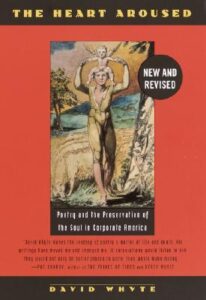
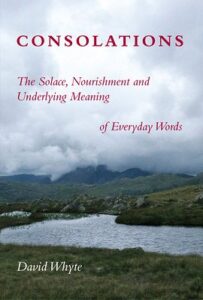
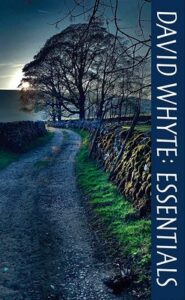
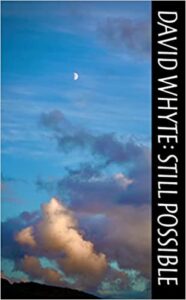


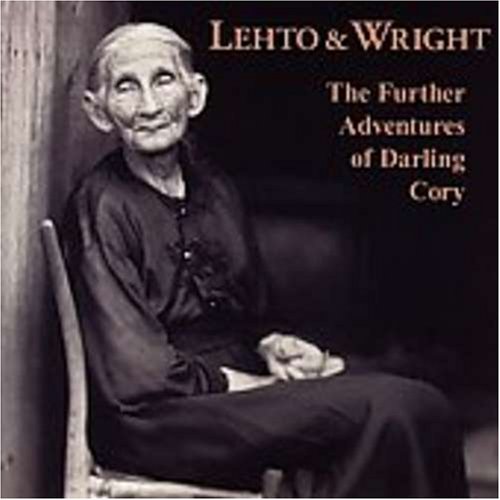
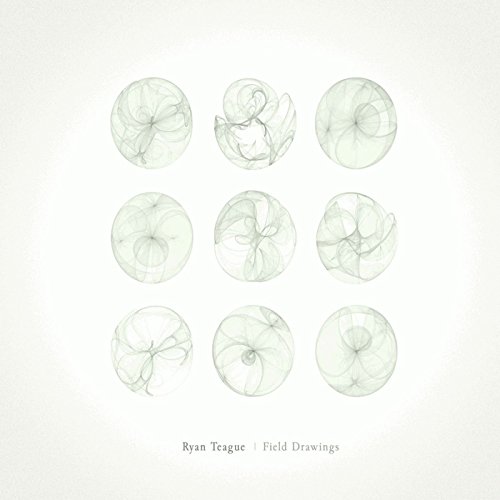
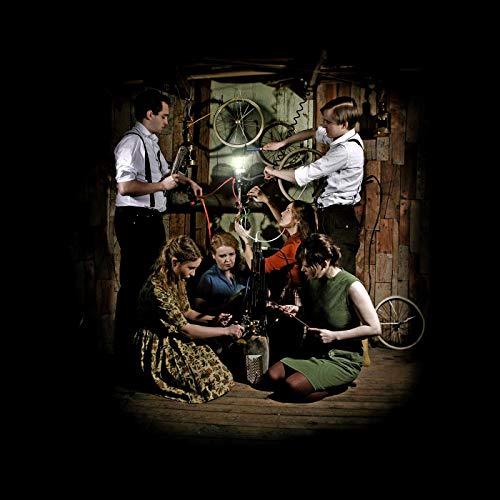
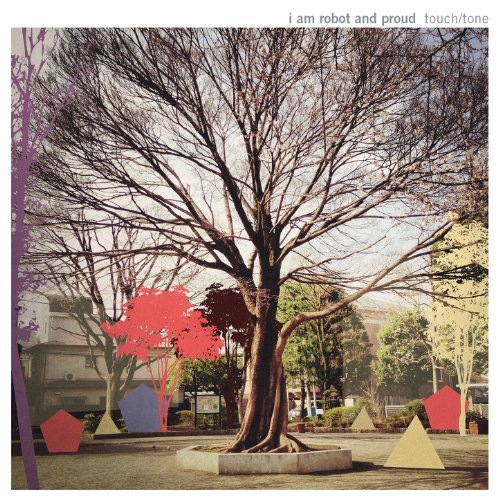

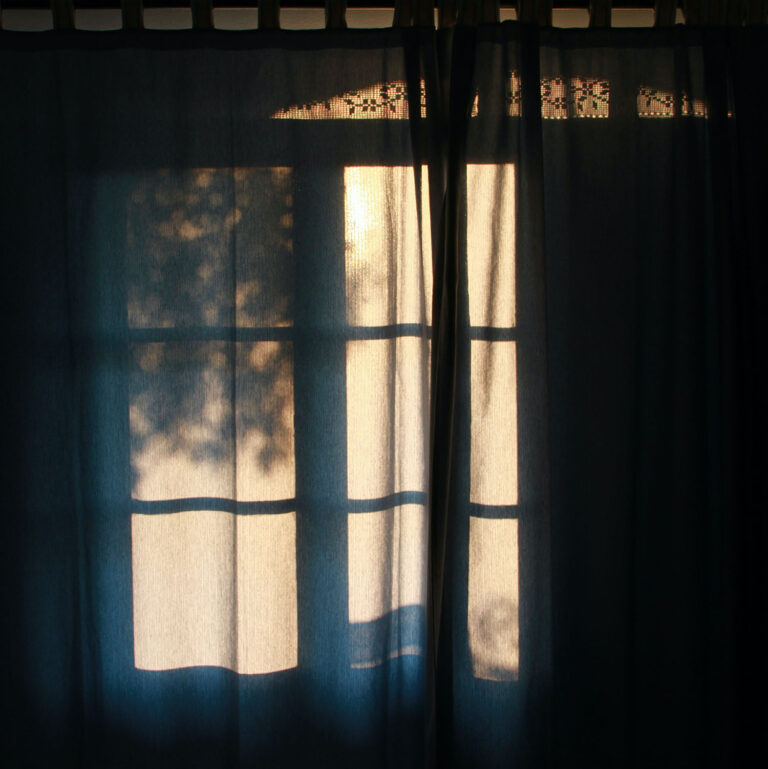




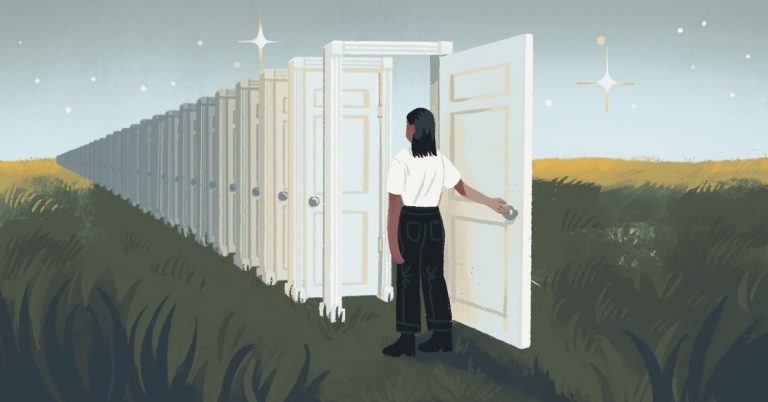
Reflections